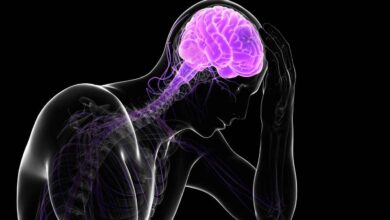Mental Health and Adolescents: Challenges and Solutions

Adolescents face a myriad of stressors that can impact their mental health. The pressures of academic performance, social dynamics, and the transition into adulthood can all contribute to emotional turmoil. Additionally, the rapid growth of technology and social media presents unique challenges. Constant exposure to online platforms can lead to cyberbullying, social comparison, and a distorted sense of reality, exacerbating feelings of anxiety and depression.
Common Mental Health Issues in Adolescents
Mental health issues such as anxiety, depression, and eating disorders are common among adolescents. These conditions can manifest in various ways, including changes in mood, behavior, and academic performance. Early identification and intervention are crucial to addressing these issues before they escalate. Parents, educators, and healthcare providers play a vital role in recognizing the signs of mental distress and providing appropriate support.
The Role of Schools
Schools are a pivotal setting for addressing adolescent mental health. Implementing comprehensive mental health programs within educational institutions can provide students with the resources they need to cope with stress and build resilience. These programs can include counseling services, mental health education, and peer support groups. By integrating mental health into the school curriculum, educators can equip students with the skills to manage their emotions and seek help when needed.
Parental Support
Parents also play a crucial role in supporting their adolescent children’s mental health. Open communication and active listening are key components of this support. Parents should create a safe and non-judgmental space where their children feel comfortable expressing their thoughts and feelings. Additionally, parents can model healthy coping strategies and self-care practices, demonstrating the importance of mental well-being.
Professional Help and Therapy
Professional help is often necessary for adolescents struggling with mental health issues. Therapy can provide a structured and supportive environment for young people to explore their emotions and develop coping strategies. Cognitive-behavioral therapy (CBT), for example, is effective in treating anxiety and depression by helping individuals identify and change negative thought patterns. Family therapy can also be beneficial, addressing familial dynamics that may contribute to mental health problems.
Understanding how to stop intrusive thoughts can be a valuable resource for those seeking guidance on managing persistent worries.
Preventive Measures
Preventive measures are essential in promoting adolescent mental health. Encouraging physical activity, healthy eating, and adequate sleep can have a positive impact on emotional well-being. Regular exercise has been shown to reduce symptoms of anxiety and depression, while a balanced diet and sufficient rest are critical for overall health. Mindfulness practices, such as meditation and deep breathing exercises, can also help adolescents manage stress and improve their mental resilience.
The Importance of Social Connections
Social connections are another important factor in adolescent mental health. Building strong, supportive relationships with peers, family members, and mentors can provide a sense of belonging and security. Encouraging adolescents to participate in extracurricular activities and community service can foster these connections and enhance their social skills.
The Role of Technology
Technology, while presenting challenges, can also be a valuable tool in supporting adolescent mental health. Various apps and online resources are available to help young people manage their mental health. These tools can provide access to mental health information, coping strategies, and virtual support groups, offering a sense of community and resources for those who may not have access to traditional forms of support.
However, it is crucial to balance screen time and encourage offline activities. Excessive use of digital devices can contribute to sleep disturbances, reduced physical activity, and increased feelings of isolation. Setting boundaries around screen time and promoting face-to-face interactions can mitigate these negative effects.
A Multifaceted Approach to Adolescent Mental Health
Addressing adolescent mental health requires a multifaceted approach that includes education, early intervention, and ongoing support. By creating an environment that fosters open communication, reducing stigma, and providing access to mental health resources, we can help young people navigate the challenges of adolescence more effectively. Parents, educators, and healthcare providers must work together to ensure that adolescents have the tools and support they need to thrive. Through these efforts, we can promote a healthier, more resilient generation equipped to face the future with confidence and well-being.



